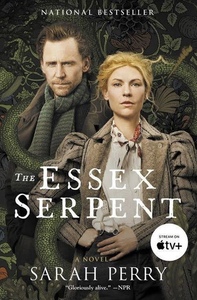You need to sign in or sign up before continuing.
Take a photo of a barcode or cover
adventurous
dark
emotional
funny
hopeful
inspiring
mysterious
reflective
medium-paced
Plot or Character Driven:
Character
Strong character development:
Yes
Loveable characters:
Yes
Difficult language, characters didn’t hold my attention.
dark
emotional
mysterious
reflective
sad
tense
medium-paced
Plot or Character Driven:
Character
Strong character development:
Yes
Loveable characters:
Complicated
Diverse cast of characters:
No
Flaws of characters a main focus:
Yes
mysterious
slow-paced
Plot or Character Driven:
Plot
Strong character development:
No
Loveable characters:
Complicated
Diverse cast of characters:
No
Flaws of characters a main focus:
No
I really liked this book at the beginning and honestly I liked it less and less as it went on. I found the multiple characters hard to keep track of (that's definitely a 'me' problem!) and I found the ending quite unsatisfying. But the writing was engaging and when I wasn't reading it, I was looking forward to being able to pick it up again.
mysterious
slow-paced
Plot or Character Driven:
Character
Strong character development:
No
Loveable characters:
No
Diverse cast of characters:
No
Flaws of characters a main focus:
No
dark
informative
mysterious
slow-paced
Plot or Character Driven:
Character
Strong character development:
Complicated
Loveable characters:
No
Diverse cast of characters:
No
Flaws of characters a main focus:
Yes
4.5
Yes, I’ll admit that the first thing that attracted me to this book was the incredible cover! I mean, as you can see, it is a work of beauty. Luckily, the interior is of the same quality.
Perry has an amazing writing style, very lyrical without being heavy or convoluted. On the contrary, it flows, meanders, while completely spellbinding you.
"Light picked out channels cut in crystal glasses and glossed the wood of the polished table, and Stella's forget-me-nots bloomed on their napkins.”
The author packs so much in these pages that I’m not sure where to start. It is at the same time a gothic tale, a novel of ideas and a study of characters, combining eeriness with reason. Superstition, science and religion, which are often used in confrontation, are here entwined together in unison, and this is particularly visible in the figure of the serpent that permeates everything - from the mythical Essex serpent, embodying the fear of the unknown, the Caduceus of medicine, theories and discoveries forever pushing boundaries, to the biblical snake, symbol of temptation and sin. Everything seems to be connected to knowledge, or the lack thereof; even sin could be seen as acquirement of knowledge (think Pullman).
"There is nothing to be afraid of. Except ignorance. What seems frightening is just waiting for you to shine a light on it.”
The narrative travels between London and the marshes, two distinct worlds in this late Victorian era, following the uncompromising Cora Seaborne, recently widowed, and her ‘autistic’ son. Here is an amazing character (can’t seem able to stop using superlatives) that defies categorisation. From the first page, she shines. And it isn’t just her. Perry seems to be able to create complex and fascinating protagonists, ignoring whether they are main or secondary, and portraying all in strong and vivid strokes.
I could carry on waxing lyrical, analysing many other elements, but ultimately this is just a great read, immersive, engrossing and intelligent :O)
Yes, I’ll admit that the first thing that attracted me to this book was the incredible cover! I mean, as you can see, it is a work of beauty. Luckily, the interior is of the same quality.
Perry has an amazing writing style, very lyrical without being heavy or convoluted. On the contrary, it flows, meanders, while completely spellbinding you.
"Light picked out channels cut in crystal glasses and glossed the wood of the polished table, and Stella's forget-me-nots bloomed on their napkins.”
The author packs so much in these pages that I’m not sure where to start. It is at the same time a gothic tale, a novel of ideas and a study of characters, combining eeriness with reason. Superstition, science and religion, which are often used in confrontation, are here entwined together in unison, and this is particularly visible in the figure of the serpent that permeates everything - from the mythical Essex serpent, embodying the fear of the unknown, the Caduceus of medicine, theories and discoveries forever pushing boundaries, to the biblical snake, symbol of temptation and sin. Everything seems to be connected to knowledge, or the lack thereof; even sin could be seen as acquirement of knowledge (think Pullman).
"There is nothing to be afraid of. Except ignorance. What seems frightening is just waiting for you to shine a light on it.”
The narrative travels between London and the marshes, two distinct worlds in this late Victorian era, following the uncompromising Cora Seaborne, recently widowed, and her ‘autistic’ son. Here is an amazing character (can’t seem able to stop using superlatives) that defies categorisation. From the first page, she shines. And it isn’t just her. Perry seems to be able to create complex and fascinating protagonists, ignoring whether they are main or secondary, and portraying all in strong and vivid strokes.
I could carry on waxing lyrical, analysing many other elements, but ultimately this is just a great read, immersive, engrossing and intelligent :O)
As one might expect from a novel that blends science and a dose literary feminism (to be described in just a moment), Perry's novel shines most brightly in describing scenes of nature. In particular, I found myself drawn to her descriptions of fog and its promise of thrills and mystery, or at least mystification.
Having obtained this book from a book swap party, I was excited by the promise of mystery, a nineteenth century British milieu, and a more progressive conception of what it means to be a "woman" when one's inclinations are societally marked as masculine. Truthfully, I didn't think the novel delivered completely on any of those promises (that I believe were made, though perhaps not acknowledged by the author). Throughout the story, the serpent adequately serves as a metaphor for fear, self-alienation, and change; the serpent is not the same serpent for everyone, mind you, which Perry communicates adeptly - making it probably the most successful aspect of the novel for me (unexpectedly so, even, given the title of the novel).
The "literary feminism" I had heard buzzed about this novel didn't feel super clear. Cora is certainly an interesting character, in part because of her willingness to disregard society's expectations to a point but also because her connection to the earth and science is relatable and contagious. I understand the point of linking her to a man of privilege, her being a widow of a powerful and wealthy individual. I didn't see or necessarily understand the need to tie her to men in such stifling ways throughout the story. Her most powerful allies are women (Stella and Martha for markedly different reasons), though the connection between them feels under explored. And, I guess that means the end wasn't enough for me.
I really struggled with the relationship between Cora and Will. The obviousness of their tension and connection (representing empiricism/science and spirituality, respectively) was hard to stomach. Though the novel makes it clear that neither has an authoritative control of the story, their interconnection just seemed...obvious? unexciting? too superficial? I don't know how it lands with me on the whole, but their scene of "connection" just really put me off.
Ultimately this novel is poignant when its points are more nuanced, more blurry. Some of Perry's more obvious attempts at symbolism didn't work and made some of her more interesting investigations difficult to find and interpret.
Having obtained this book from a book swap party, I was excited by the promise of mystery, a nineteenth century British milieu, and a more progressive conception of what it means to be a "woman" when one's inclinations are societally marked as masculine. Truthfully, I didn't think the novel delivered completely on any of those promises (that I believe were made, though perhaps not acknowledged by the author). Throughout the story, the serpent adequately serves as a metaphor for fear, self-alienation, and change; the serpent is not the same serpent for everyone, mind you, which Perry communicates adeptly - making it probably the most successful aspect of the novel for me (unexpectedly so, even, given the title of the novel).
The "literary feminism" I had heard buzzed about this novel didn't feel super clear. Cora is certainly an interesting character, in part because of her willingness to disregard society's expectations to a point but also because her connection to the earth and science is relatable and contagious. I understand the point of linking her to a man of privilege, her being a widow of a powerful and wealthy individual. I didn't see or necessarily understand the need to tie her to men in such stifling ways throughout the story. Her most powerful allies are women (Stella and Martha for markedly different reasons), though the connection between them feels under explored. And, I guess that means the end wasn't enough for me.
I really struggled with the relationship between Cora and Will. The obviousness of their tension and connection (representing empiricism/science and spirituality, respectively) was hard to stomach. Though the novel makes it clear that neither has an authoritative control of the story, their interconnection just seemed...obvious? unexciting? too superficial? I don't know how it lands with me on the whole, but their scene of "connection" just really put me off.
Ultimately this novel is poignant when its points are more nuanced, more blurry. Some of Perry's more obvious attempts at symbolism didn't work and made some of her more interesting investigations difficult to find and interpret.
Ngl, really kinda disliked this. I enjoyed the first half of it and then it rapidly went down hill for me. I was intrigued by the odd character dynamics between many of the characters and the refreshing, unconventional, and uninhibited way they treated each other. However, it descended into a chaotic, unfocused mess, full of character drama and serpent-related fear and superstition that never gets a proper conclusion. I think the main sentiment I'm left with after finishing it was, what was the point of this book?
It makes sense that the summary gives a focused overlook, but the reality of the book doesn't really flesh out the ideas or plot progression introduced into it. There wasnt really any investigation of the Essex Serpent, which was more of a inconsequential backdrop to the messy, messy character stuff happening in it. I end up extremely disliking a majority of the characters presented which isn't great. The ending was fine, better than I expected which brought the rating up a bit.






